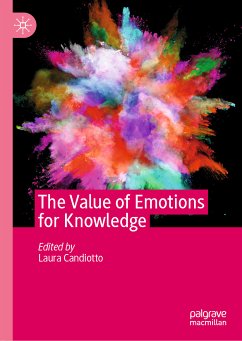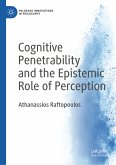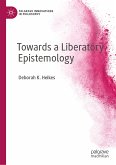"Philosophical work on emotion has arrived the very heart of our discipline. This superbly curated collection shows how rigorous, inventive and encompassing philosophers of emotion tackle key issues in the theory and ethics of knowing. I'm particularly struck by how smoothly historical and systematic perspectives get interwoven to challenge established ways of construing knowledge. Essential reading for epistemologists, ethicists and emotion scholars alike."
-Jan Slaby, Professor of Philosophy of Mind at Freie Universität Berlin, Germany
"Laura Candiotto has done a great service to both philosophers of emotion and epistemologists in putting together this exciting new volume that explores the many ways in which emotions contribute to knowledge. The contributions are highly diverse, written by scholars from different traditions and areas of philosophy, including situated cognition, phenomenology, ethics, and more. All philosophers interested in emotion, cognition, and knowledge will thus find something new and valuable in this highly recommended collection."
- Giovanna Colombetti, Associate Professor of Philosophy at Exeter Unviersity, UK
"There has been an upsurge of interesting work on the emotions in recent years, drawing on a range of disciplines. This volume brings together a number of fascinating snapshots of this work, and in the process advances the debate still further. Essential reading for anyone working on the emotions."
- Duncan Pritchard, Chancellor's Professor of Philosophy, UC Irvine & Professor of Philosophy, University of Edinburgh, UK
This innovative new volume analyses the role of emotions in knowledge acquisition. It focuses on the field of philosophy of emotions at the exciting intersection between epistemology and philosophy of mind and cognitive science to bring us an in-depth analysis of the epistemological value of emotions in reasoning.
With twelve chapters by leading and up-and-coming academics, this edited collection shows that emotions do count for our epistemic enterprise. Against scepticism about the possible positive role emotions play in knowledge, the authors highlight the how and the why of this potential, lucidly exploring the key aspects of the functionality of emotions. This is explored in relation to: specific kinds of knowledge such as self-understanding, group-knowledge and wisdom; specific functions played by certain emotions in these cases, such as disorientation in enquiry and contempt in practical reason; the affective experience of the epistemic subjects and communities.
Dieser Download kann aus rechtlichen Gründen nur mit Rechnungsadresse in A, B, BG, CY, CZ, D, DK, EW, E, FIN, F, GR, HR, H, IRL, I, LT, L, LR, M, NL, PL, P, R, S, SLO, SK ausgeliefert werden.
Es gelten unsere Allgemeinen Geschäftsbedingungen: www.buecher.de/agb
Impressum
www.buecher.de ist ein Internetauftritt der buecher.de internetstores GmbH
Geschäftsführung: Monica Sawhney | Roland Kölbl | Günter Hilger
Sitz der Gesellschaft: Batheyer Straße 115 - 117, 58099 Hagen
Postanschrift: Bürgermeister-Wegele-Str. 12, 86167 Augsburg
Amtsgericht Hagen HRB 13257
Steuernummer: 321/5800/1497
USt-IdNr: DE450055826
Bitte wählen Sie Ihr Anliegen aus.
Rechnungen
Retourenschein anfordern
Bestellstatus
Storno









